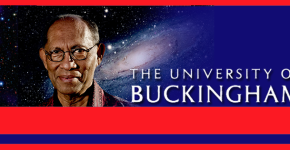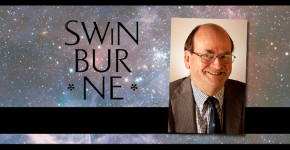Category: Astronomy
-

Chandra Wickramasighe – University of Buckingham – Cosmic Beginnings
How life began on Earth remains one of the main foci of scientists the world over. Dr. Chandra Wickramasighe, a renowned astro-biologist at The University of Buckingham, offers his thoughts on a cosmological starting point for life on our planet. Chandra Wickramasinghe is acknowledged as a leading expert on interstellar material and astrobiology. He has…
-

Jason Kalirai, Johns Hopkins University – Exploring Exoplanets
As increasingly powerful telescopes improve, so does our ability to study the vastness of the galaxy. Jason Kalirai, associate researcher at the Center for Astrophysical Sciences at Johns Hopkins University, specializes in the deepest of deep space studies. Dr. Jason Kalirai is a research scientist at the Johns Hopkins University Center for Astrophysical Sciences and…
-

Jorge Zuluaga, University of Antioquia – Debunking “Pandora”
With the announcement of a series of sequels, now is a great time to discuss the scientific viability of the Avatar world. Jorge Zuluaga, an astronomer at Colombia’s Universidad de Antioquia, wants to emphasize the “fiction” in science fiction. In his Academic Minute, Dr. Zuluaga discusses the physical viability of Pandora, a moon set in…
-

Jeremy Mould, Swinburne University of Technology – Gravity’s Constant
Have the natural laws that govern the cosmos ever changed? Dr. Jeremy Mould, professor of astrophysics and supercomputers at the Swinburne University of Technology, observes that gravity has remained unchanged for billions of years. Jeremy Mould is a graduate of the University of Melbourne and of the Australian National University. He is a professor at Swinburne…
-

DJ Pisano, West Virginia University – Galaxy Gas and Star Production
Where do galaxies get their gas? D.J. Pisano, assistant professor in the Department of Physics and Astronomy at West Virginia University, is studying chemical elements present in space to unlock mysteries of the universe. Dr. D.J. Pisano is an assistant professor in the Department of Physics and Astronomy. He received his BS degree from Yale…
-

Victoria Kaspi, McGill University – Moving Neutron Stars
What is left after a star explodes and dies? The answer is a neutron star. Dr. Victoria Kaspi, professor of astrophysics and cosmology at McGill University, is piecing together the structure of a specific type of neutron star called a magnetar. Dr. Victoria Kaspi is the Lorne Trottier Chair in Astrophysics and Cosmology at McGill University in…
